Sustainability Spotlight
Nominate Someone!
June 2025
XylonaWangilia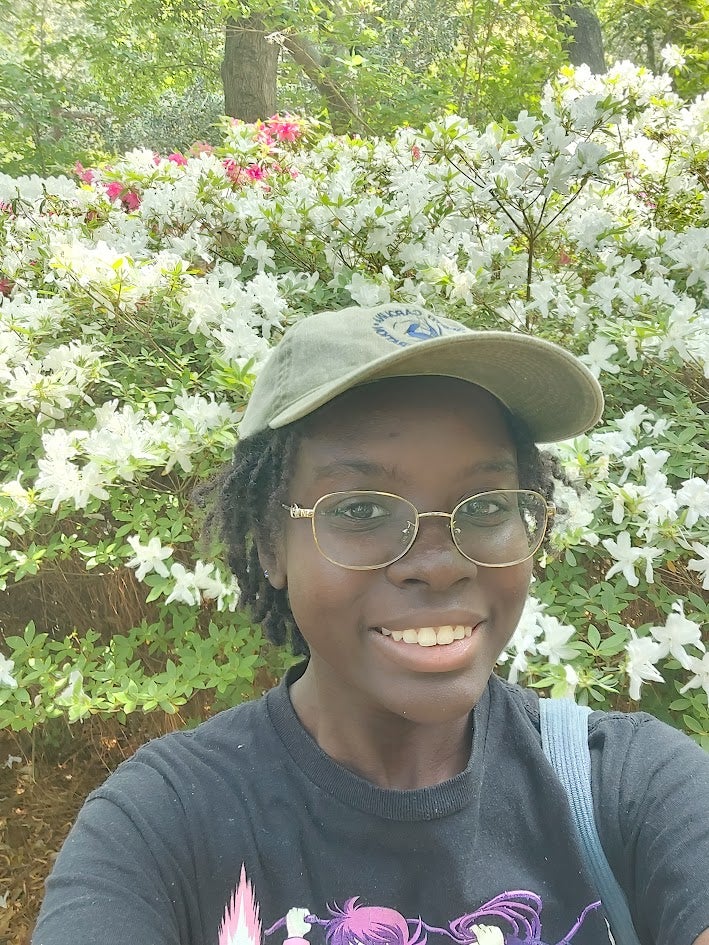
- What is your position here at ECU and what are your responsibilities?
I’m a third-year ECU student and intern with the Sustainability Program. My roles are to assist with the campus outreach, data collection, and social media engagement. Basically, I give a student’s perspective in the search for ways to make ECU more sustainable. You can find me around giving a presentation about the Green Office or tabling at some of your favorite events.
- What does sustainability mean to you?
To me, sustainability means to be mindful about what and how we’re consuming. It’s about finding a balance between a variety of different elements, including those environmental, social, and economic, to move forward with the common goal of preserving the natural world around us.
- What initially got you interested in sustainability?
I have always had an interest in natural sciences, earth science being a favorite of mine since elementary school. I remember being in class, in awe of the pictures and documentaries of places like the Amazon Rainforests, or the Great Barrier reefs. Going to the Raleigh Museum of Natural Science was the highlight of my semester. It was deep rooted in me then that nature is something to love and respect, and that we depend on it for literally all aspects of our lives. As I got older I learned more about climate change, biodiversity loss, pollution, etc., as well as the many efforts to find solutions to these issues. Now as an environmental studies major, I’ve had countless volunteer opportunities and research opportunities that have let me know that conservation is what I want to do.
- What are some of your favorite things you do to make your life more sustainable?
I like to maintain a vegetarian diet as much as possible and visit farmers markets when I can. I also carpool a lot in Greenville, and in bigger cities, I try to use their public transportation systems. I’m also a big fan of thrifting and upcycling old clothes since I can reduce waste while exercising my creativity.
- Do you have any resources you recommend for learning about sustainability?
Definitely stay up to date with the Sustainability Office ( shameless plug), we’re always around campus tabeling and our website has a bunch of information on how to stay sustainable at ECU. As far as off campus, there’s so much media that has to do with environmental degradation and ways to combat it. If you’re a reader, I definitely recommend Parable of the Sower by Octavia E. Butler. If you’re more of a watcher, I really like films like Food, Inc. (2008) and 2040 (2019).
- What do you think is the most important thing people can do to help with sustainability efforts on campus and in our community?
I think one of the most important things you can do is try to minimize waste whenever you can, like I said before small steps can lead to bigger ones in the future. Anything you can think of, whether it’s the way you shop or how you dispose of trash, try to implement more environmentally friendly alternatives into your everyday routines.
May 2025
Charles Suggs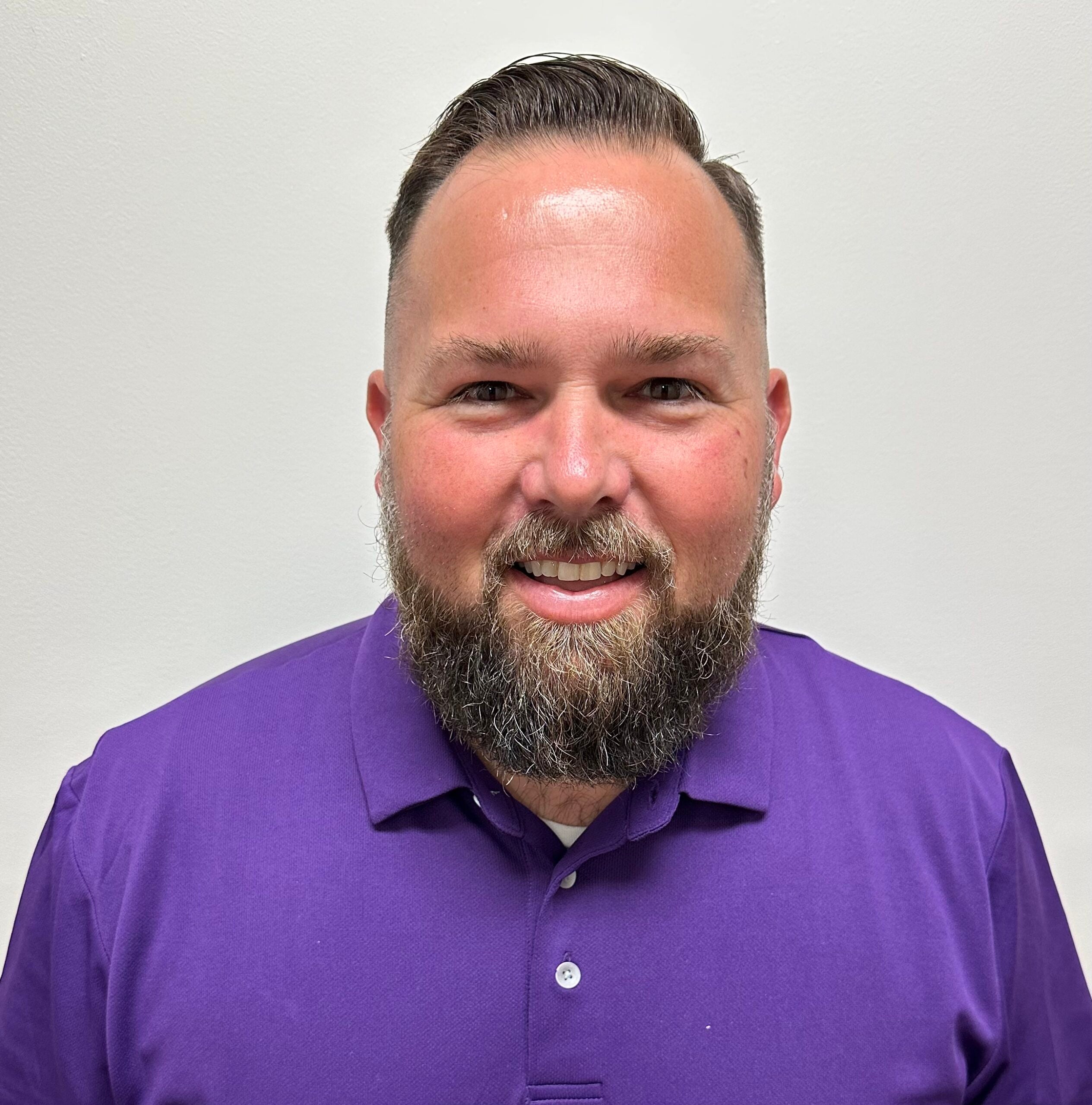
- What is your position here at ECU and what are your responsibilities?
I am the Recycling/Waste Reduction Coordinator. My responsibilities are to work with Faculty, Staff, and Students to reduce waste on campus by recycling. I oversee the day-to-day operations of the Recycling and Refuse departments. I also monitor the total weights of recyclables and waste collected from campus.
- What does sustainability mean to you?
For me, sustainability is to be able to live in my community without leaving a negative impact on our environment.
- What initially got you interested in sustainability?
I was asked to oversee the recycling department after the last coordinator retired and I had the chance to see firsthand the waste we have on campus, and I wanted to improve how we handle waste.
- What are some of your favorite things you do to make your life more sustainable?
To walk or ride a bike, donating unwanted items instead of throwing them away and I like to shop at thrift stores to get items instead of buying new things.
- Do you have any advice for someone who is new to sustainability?
My advice is to take small steps. First step, start recycling what you can. Ask yourself, is this something that can be recycled before just tossing it out as trash.
- Do you have any resources you recommend for learning about sustainability?
Reach out to the Sustainability office and follow them on social media for events and tips on how to live a more sustainable life on campus.
- What do you think is the most important thing people can do to help with sustainability efforts on campus and in our community?
To help educate your peers on sustainability and recycling on campus. Get out and help your community by volunteering to help change the impact we are leaving for future generations.
April 2025
Lauren Garcia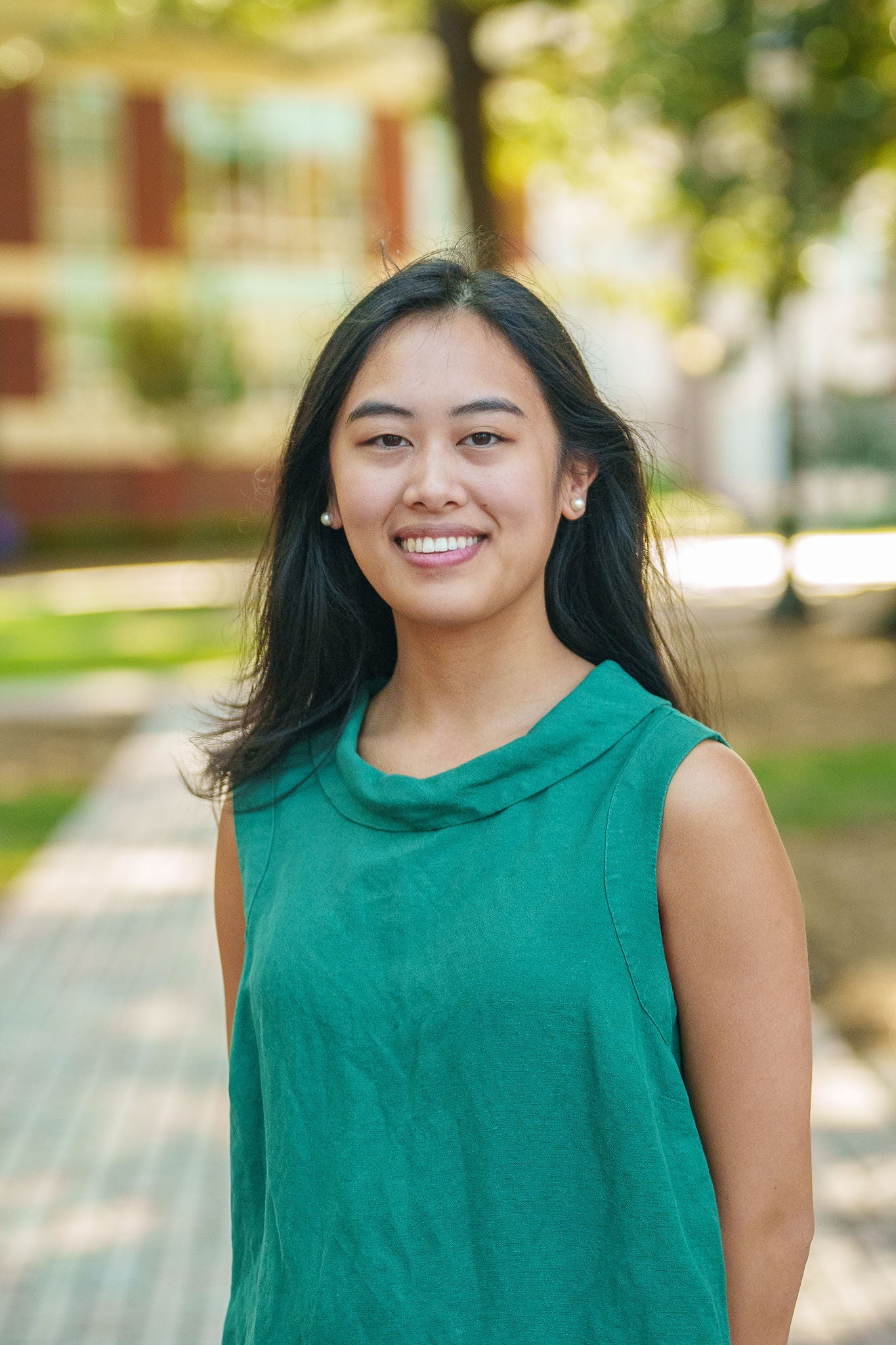
- What is your position here at ECU, and what are your responsibilities?
At ECU, I serve as the SGA Director of Sustainable Development. This means that I sit on our Student Government’s general assembly and the president’s executive cabinet, as well as lead the sustainability committee. Together, we are able to collaborate with the various representatives, students, staff, faculty, and administrators to develop legislation and initiatives geared towards topics like waste management, energy, and transportation.
- What does sustainability mean to you?
The spirit of sustainability is to accomplish what we need in the present, but to do so with future generations in mind. I’ve been fortunate to have done a lot of great hiking and traveling in my life already, and as a result have seen some amazing natural sights. I want to encourage sustainable lifestyles— environmentally, economically, and socially— so that others are able to have the same awe-filled experiences.
- What initially got you interested in sustainability?
Some of my favorite early childhood memories are watching the deer and bunnies in my backyard, and picking wild strawberries and honeysuckles with friends. Consequently, I’ve always had a love for the environment. I remember at elementary age playing games learning how to sort recyclables vs trash at Town of Cary festivals. When I was in high school though, I joined an NC Museum of Natural Sciences program focused on environmental resilience in NC; once I learned how climate change is impacting human health and our hometowns, I think that’s when I really started to get involved in sustainability work.
- What are some of your favorite things you do to make your life more sustainable?
Using sustainable alternative modes of transportation has allowed me to be a lot more active and have more social time with friends. Some examples have been walking with friends to class, biking to coffee shops, carpooling to student org activities, or taking the bus to jobs on health science campus.
- Do you have any advice for someone who is new to sustainability?
Do any outdoor activities that you love, and your journey into sustainability will come with it. It’s a part of the culture. I think you’ll slowly start to become more mindful about the products you’re consuming, and the wider impact individual actions have on the world.
- Do you have any resources you recommend for learning about sustainability?
Any student is always welcome to come into the SGA office and inquire about current initiatives/legislation, tell representatives their concerns, or propose new ideas. My committee is working on releasing a document titled “A Student’s Guide to Sustainability at ECU” for everyone to be able to access tips and hints.
- What do you think is the most important thing people can do to help with sustainability efforts on campus and in our community?
I think everything I want to say falls into the “leave no trace” philosophy. Try to be a good steward of the places you love by properly disposing of any waste you have— check if you need to wash items out before recycling, separating things by material type, or find a trash can instead of littering.
December 2024
Marly Carmona Uzcategui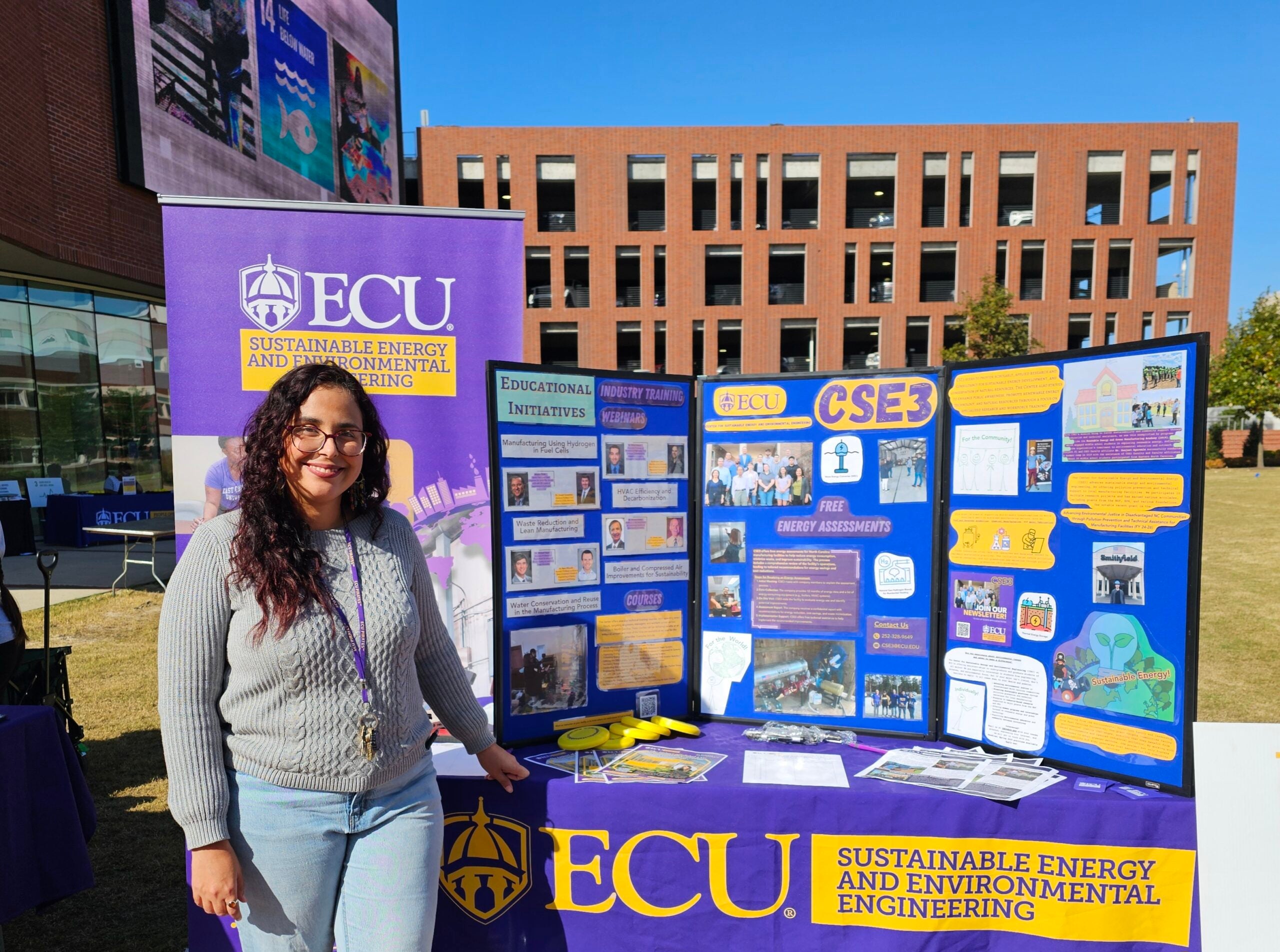
- What is your position here at ECU and what are your responsibilities?
As an Environmental Specialist at the Center for Sustainable Energy and Environmental Engineering, I focus on pollution prevention initiatives across North Carolina. My role involves connecting manufacturing facilities with our technical teams to provide no-cost energy, water, and lean assessments. I also supervise research assistants working on pollution prevention projects, organize sustainability workshops, and technical courses, and engage students in various activities on campus. Additionally, I moderate a monthly webinar series where I invite experts to share best practices that empower manufacturers to reduce or prevent pollution, and I build connections with stakeholders from the community, industry, and academia.
- What does sustainability mean to you?
To me, sustainability is a commitment to reflecting on our actions and understanding their impact on the environment and future generations. While achieving sustainability inherently involves ensuring that the use of natural resources does not exceed their rate of replenishment, it also goes beyond this definition. It transcends the simple framework of “people, planet, and profit,” emphasizing a deeper responsibility to protect and nurture our world. It means recognizing that our daily choices shape the environment we inhabit and that we have a collective duty to promote the well-being of both the planet and humanity.
- What initially got you interested in sustainability?
My interest in sustainability really comes from my childhood spent outdoors, which gave me a deep appreciation for nature. I grew up in a family involved in the meat trade and agriculture, and I spent a lot of time on my grandmother’s farm in the Andes mountains of Venezuela. Being in the countryside helped me connect with the environment in a meaningful way. Through outdoor activities, I developed a strong sense of empathy and responsibility for all living things. This passion eventually led me to study biology for two years, and then I switched to forest engineering because I became fascinated with plants after taking a plant biology class.
- What are some of your favorite things you do to make your life more sustainable?
Some of my favorite ways to live more sustainably include reducing my meat consumption and prioritizing vegetables in my meals. I don’t eat any seafood and keep my consumption of pork and beef to a minimum. I also enjoy walking to work and whenever possible, I prefer public transportation or carpooling. Additionally, I enjoy writing and sharing information that can help others learn about sustainability and nature-related topics. Here is a link to the content I create: sustainabilityinanutshell.
- Do you have any advice for someone who is new to sustainability?
If you’re unsure where to start with sustainability, consider the leading cause of our most pressing environmental issue: excessive CO2 emissions driven primarily by our demand for transportation and electricity to power our homes and economies. There’s a lot going on in the world, and many complex environmental issues can make it easy to feel discouraged and overwhelmed. However, I believe maintaining a positive mindset can stimulate our brains to focus on solutions rather than feeling defeated. It’s important to remember that it’s the cumulative actions we take that will truly make a difference.
- Do you have any resources you recommend for learning about sustainability?
I recommend checking out The Global Goals from the United Nations because they provide a comprehensive framework for understanding global challenges. The EPA website is also a fantastic resource, packed with information on pollution prevention, waste reduction, climate change, and water conservation.
For podcasts, I really enjoy ‘Sustainability Defined’ and TED Talks. If you’re interested in forests and want to be inspired to preserve these vital ecosystems, I suggest watching Suzanne Simard’s TED Talk, “How Trees Talk to Each Other” (https://www.ted.com/talks/suzanne_simard_how_trees_talk_to_each_other?subtitle=en).
You can also check out the film Il était une forêt (Once Upon a Forest) by Luc Jacquet, and visit the Think Wood website to learn about green building practices.
We also have our ECU pollution prevention webinar series! Here’s the link: https://www.youtube.com/@ECUCSE3
Right now, I’m reading The Intersectional Environmentalist by Leah Thomas. I believe it’s important to include an understanding of environmental justice in our sustainability journey.
- What do you think is the most important thing people can do to help with sustainability efforts on campus and in our community?
I believe that reducing energy consumption is one of the most important actions individuals can take to support sustainability efforts on campus and in our community. We can each contribute by making small, mindful choices, such as turning off our computers, monitors, and lights at the end of each day. If you notice that the day is winding down and no one will be around, take a moment to turn off the manual lights in bathrooms and other common areas. Beyond energy use, we should also encourage our community to utilize public transportation and consider walking or biking for shorter distances.
November 2024
L.J. Palmer-Moloney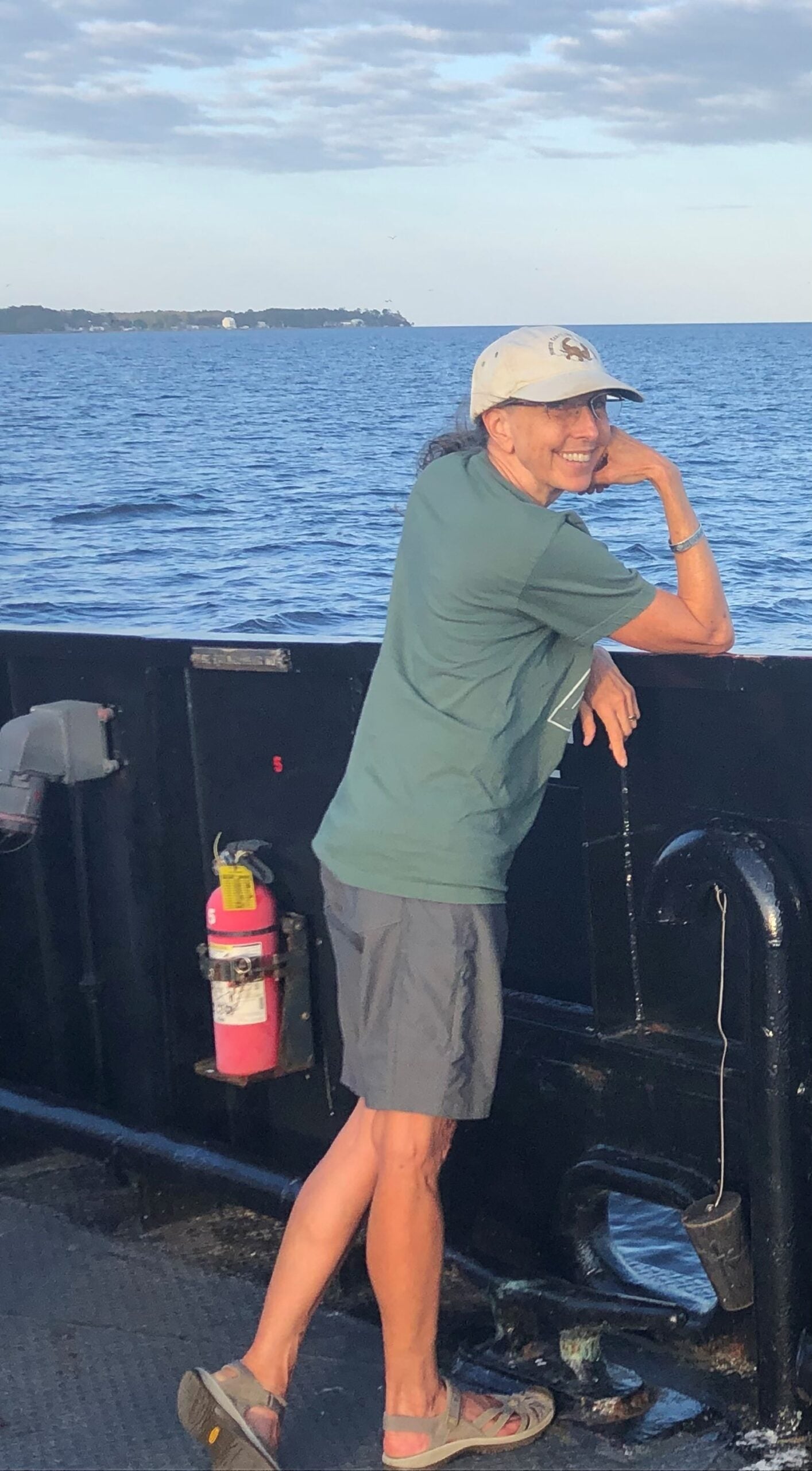
- What is your position here at ECU and what are your responsibilities?
As a Teaching Assistant Professor in the Department of Geography, Environment, and Planning, my work is focused on teaching and service.
Teaching:
- GEOG 1250 – Water in the Environment (natural science elective)
- GEOG 4260/6260 – Environmental Impact Analysis
- GEOG 4335 – Tourism Geography
- GEOG 4270 – Water Resources Management
- Course Development:
- GEOG 1251 – Water in the Environment lab taught as part of ECU’s Project Kitty Hawk online learning.
- GEOG 4240 – Environmental Security (course development and approval process underway)
Service:
I am also a co-sponsor of ECU’s Beta Iota chapter of Gamma Theta Upsilon (GTU), the International Geography Honor Society, and I orchestrate Geography Awareness Week activities.
- What does sustainability mean to you?
For me, sustainability is all about Climate Action, finding a long-term, achievable balance in human-environment interaction that supports biodiversity and addresses global warming.
- What initially got you interested in sustainability?
I was born in Baton Rouge and grew up along the Mississippi River in a family that taught me to have a respect for and appreciation of nature. The 1960s and early 70s was a time of economic boom tied to the oil and gas industry’s expansion, particularly offshore. I came of age in a time before NEPA and the clean water and clean air acts when the fossil fuel and chemical industries were bringing changes to the air and water of south Louisiana. The thriving environment that made us the Sportsman’s Paradise was at risk. As a young woman with an interest in protecting the environment, I took to heart the ~1973 “Life is Fragile, Handle With Care” safe campaign slogan of Dow Chemical (where my father worked). Though it wasn’t called “sustainability” at that time, this is when I became interested in sustainability.
- What are some of your favorite things you do to make your life more sustainable?
○ I meditate for ½ hr every morning and then do a couple of sun salutations (yoga).
○ I spend time in nature–gardening, tending to my beehives, going on walks (in the neighborhood or at the beach).
○ I spend the weekend “unplugged” and off screens. I read, write, play music, cook, and spend time with my friends and family.
○ I spin fleece (alpaca from the ranch down Hwy 24 is one of my favorite local sources for fleece!), and LOVE my spinning wheel therapy. It’s recharging to actually take loose fiber and twist it into usable yarn. (So often in life, we are trying to tie up loose ends!)
○ I do small things to cut my energy and water use at home, e.g., hanging out clothes on a clothesline, having “no drive” days.
○ I monitor my consumer habits! I am always finding ways to reduce, and reuse glass, clothing, etc.
- Do you have any advice for someone who is new to sustainability?
○ Find others interested in sustainability and work with them in person on projects! (See Sustainability related clubs on campus)
○ The sustainability challenges we face can sometimes feel insurmountable. To paraphrase Dr. Kate Marvel, it takes courage to do what needs to be done when there is no guarantee of a happy ending. Put your ideas into action → Do it!
- Do you have any resources you recommend for learning about sustainability?
○ Geography and environmental science classes at ECU 🙂
○ Connect with Climate Action communities on social media platforms like LinkedIn, Bluesky, and Mastodon.
○ Read the science published by trusted sources.
- What do you think is the most important thing people can do to help with sustainability efforts on campus and in our community?
○ Be action-oriented – small steps matter!
○ Talk about climate change, global warming, and environmental sustainability ○ Join groups like Citizens’ Climate Lobby, which supports building a national bipartisan solution to climate
September 2024
Tori Bain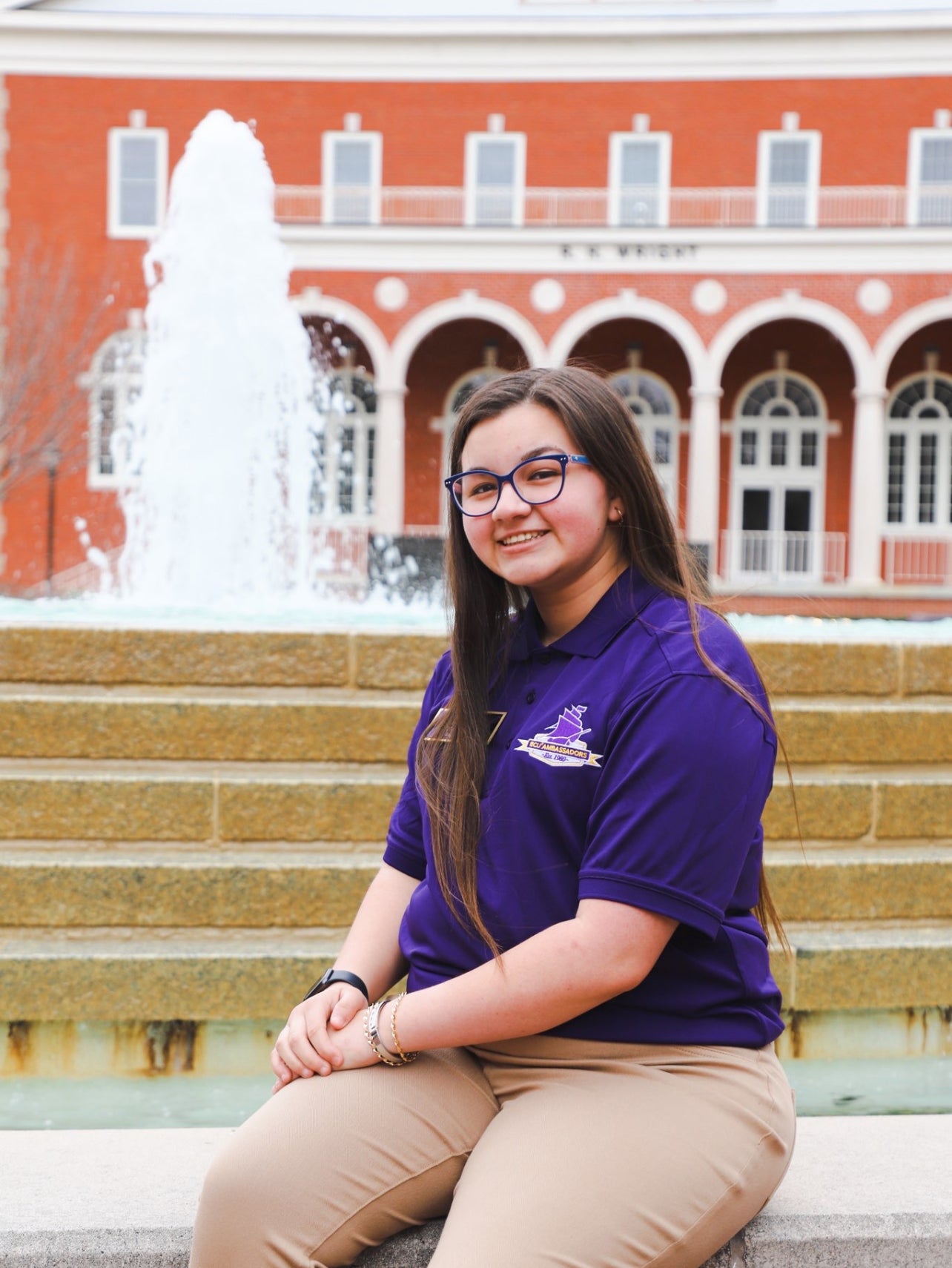
- What is your position here at ECU and what are your responsibilities?
I am the Sustainability’s office waste management intern! My primary responsibilities involve managing Sustain ECU Instagram page, coordinating campus clean up, and attending tailgates to educate tailgaters on correct recycling practices.
- What does sustainability mean to you?
Sustainability means being resourceful with what you have and minimizing waste to preserve the earth and all its resources.
- What initially got you interested in sustainability?
As a child, I was always interested in the earth and how it worked. I participated in the Science Olympiad in middle school and participated in the meteorology competition.
Because of this, when I first enrolled at ECU, I was an atmospheric science major. As I began taking Geography courses, it sparked something that made me want to search for how I could help people and the earth at the same time. I ended up switching to Environmental Studies and Geography to understand the impact that people have on the world.
- What are some of your favorite things you do to make your life more sustainable?
I LOVE reusable bags. I take bags everywhere I go and I normally keep extra ones in my car. I also enjoy cooking. I tend to prepare meals and cook in large batches to avoid food waste.
- Do you have any advice for someone who is new to sustainability?
I recommend doing research and not jumping in head first! Some routines and practices may seem overwhelming at first, but not to worry! Take it at your own speed and have fun with it. Truly understand the purpose behind the practices and make it your own.
- Do you have any resources you recommend for learning about sustainability?
In today’s social media age, I love to find out what practices others are using. Social media like Facebook, Instagram, and TikTok can allow you to connect to creators and follow them on their journey. I recommend starting local, like Sustain ECU’s Instagram page and website. They have links to several organizations and resources in the ECU/Greenville area.
- What do you think is the most important thing people can do to help with sustainability efforts on campus and in our community?
The most important thing to contribute to sustainability efforts is to simply educate yourself! Keep yourself in the loop of events and practices to know how you can stay active in the community!
August 2024
Terry Little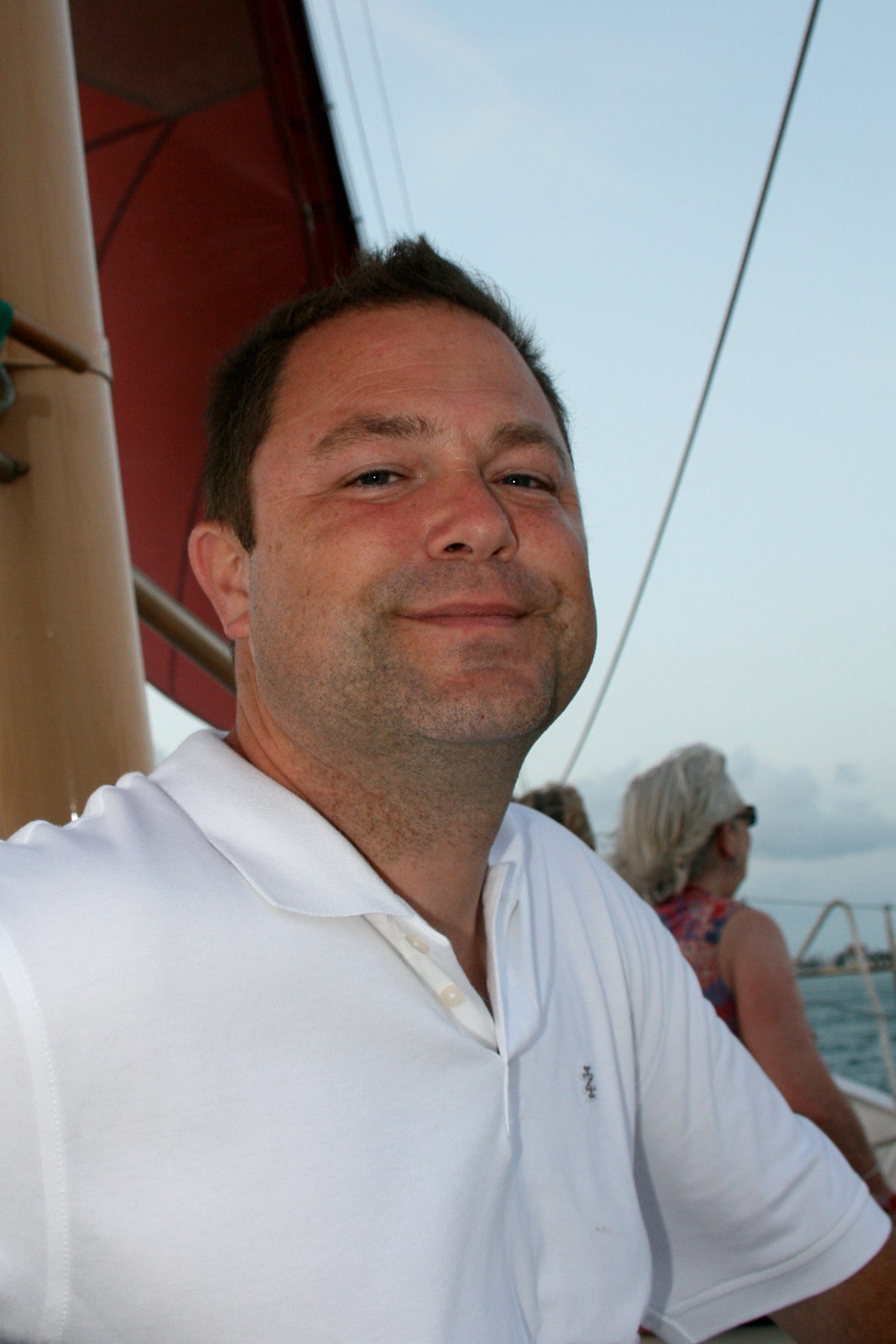
- What is your position here at ECU and what are your responsibilities?
I am the Recycling Coordinator here at ECU. Although I have other job duties, my primary responsibility is to improve waste reduction throughout the University through a comprehensive recycling program. I am also fortunate enough to partner with other departments on various re-use and sustainability initiatives such as Give-No-Go and the monthly Town Culvert Clean-up.
- What does sustainability mean to you?
The UN defined it as “meeting the needs of the present without compromising the ability of future generations to meet their own needs.” My interpretation is taking/using only what you need and leave the planet in better shape for the future.
- What initially got you interested in sustainability?
It was really ingrained in me as a child. Fortunately, my parents never let us waste food or electricity or buy things we didn’t need, and we grew our own vegetables. We were practicing sustainability before we had heard the term. When I was younger I didn’t understand it, but I am so grateful now!
- What are some of your favorite things you do to make your life more sustainable?
It is not always fun or easy, but I probably have the lowest utility bill in our neighborhood. There have been some lively conversations about the thermostat, especially this week 😊 Also, we are careful with our water consumption, and I haul our trash and recycling to the local Pitt County dump site each week. Everyone should do this- you get a better grasp on your wastefulness when you personally handle it. AND WE RARELY USE PLASTIC!
- Do you have any advice for someone who is new to sustainability?
Don’t be intimidated by the concept. Change small habits first, like turning lights off when you leave a room, recycling your cardboard and drink containers, and get outside more often. Every little thing you can do makes a difference.
- Do you have any resources you recommend for learning about sustainability?
We have great resources here at ECU! https://www.facebook.com/SustainECU/ go.ecu.edu/recycling https://www.instagram.com/sustainecu/
- What do you think is the most important thing people can do to help with sustainability efforts on campus and in our community?
Practice waste and energy reduction! Also, consider joining a club like the ECU ECO-Pirates. And remember, one day this will be your alma mater. Don’t you want to be proud of it? Leave it in great shape for the next generation of students.
July 2024
Kerry Sewell
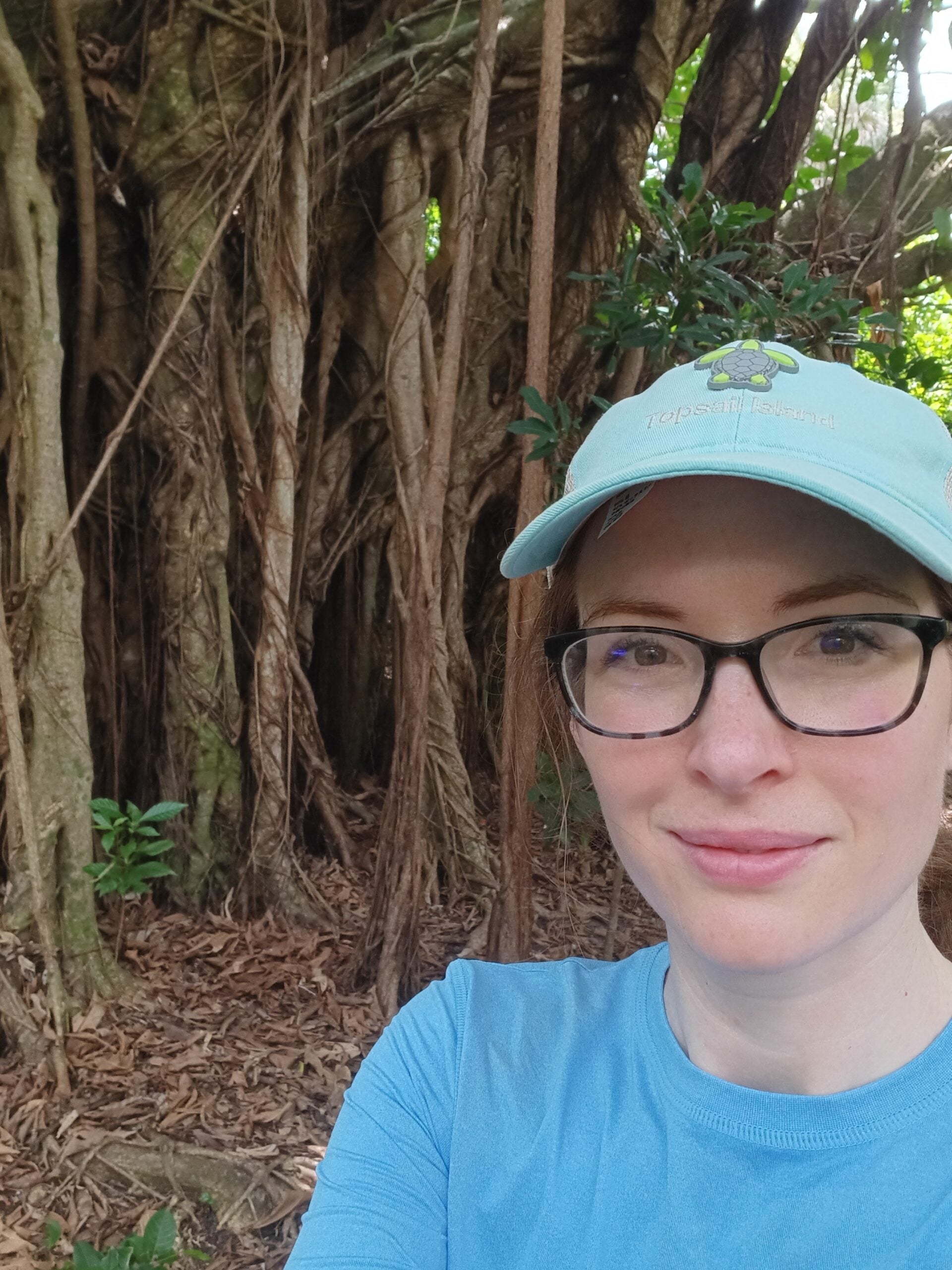
- What is your position here at ECU and what are your responsibilities?
I’m the Research Development Director for the College of Health & Human Performance. That role involves promoting the connections that foster strong research (funding opportunities, people, and external partners) and providing proposal development support.
- What does sustainability mean to you?
It means regular, critical analysis of my own actions in relation to the environment and the local to global systems that affect the environment. While I’ve sometimes heard people describe sustainability as requiring them to give things up, for me, it has been something I’ve framed as saying ‘yes’ to things that I value for both myself and my community—and clarifying what my values are.
- What initially got you interested in sustainability?
Many years back, when I was in high school, I had an internship at William & Mary that involved collecting sideswimmers from the waterways around Williamsburg, VA and in the process of collecting those freshwater invertebrates, it was visibly apparent (and confirmed through testing/analysis) that lawn chemicals and other non-point source pollutants were damaging the local aquatic ecosystems. On the lawns side of that, I became very interested in the ways that socially prescribed practices (e.g., highly fertilized and perfectly manicured lawns) and related local policies/ordinances can significantly damage (or improve) the environment. Reading more about the origins of American obsession with lawns and the tonnage and impact of lawn chemicals and water use on the environment really galvanized my journey towards considering sustainability in my own actions, far beyond lawns. I did specifically decide I never wanted to have a large lawn to mow and fertilize, both for my own sake and for the sake of my watershed.
- What are some of your favorite things you do to make your life more sustainable?
On the food side of things, I compost, grow my own herbs (as feasible in ENC), try to use as much of the food as possible (e.g., carrot greens chimichurri was a recent, happy discovery), and very rarely go out to eat. That might seem boring but I have a spouse who’s an amazing home cook and I also like to cook, so I eat almost embarrassingly well at home. I really don’t have a lawn that gets mowed more than a couple of times per year (more leisure time FTW!) and I bike to work when I can. All those actions bring me a sense of fulfillment; I have a bit of a love affair with my bike, so the cycling brings me profound joy.
- Do you have any advice for someone who is new to sustainability?
Give yourself a small, easily accomplishable goal first, and take actions that set yourself up for success. My best personal example there: a decade ago, I wanted to greatly reduce my use of single-use plastic shopping bags, but I kept forgetting to take them with me, so I put a self-storing, reusable bag in my purse so that on the occasions when I would forget to take reusable bags into a store, I had at least one with me. And I still have that same bag and use it on the regular, so by very modest calculations (1-2 uses per week for 10 years), that one bag has saved me from using somewhere between 520-1,040 single-use shopping bags.
- Do you have any resources you recommend for learning about sustainability?
As a former medical librarian, I’m stereotypically bibliophilic. I could provide my own book list, but I’ll instead mention: Penguin Random House has a good Sustainability book list and the Stanford Doerr School of Sustainability put together a good summer reading list a couple of years ago. The lists span everything from food to fashion. On the less time-use-heavy side, I’m also a fan of the EPA resources to calculate carbon footprint and their concrete lists of ways to reduce it in different spheres of life.
- What do you think is the most important thing people can do to help with sustainability efforts on campus and in our community?
I’m going to put a plug in for the University Environment Committee (UEC) on the campus side of things. Serving on that Faculty Senate committee has made me much more aware of the sustainability work being done at ECU, the many people with expertise, interests, and responsibilities related to sustainability on campus, and the ways that budget realities and policies affect sustainability efforts. I’ve had the honor and privilege of being UEC Chair for the last two years and I’m especially proud of the work of a UEC subcommittee that did the hard work leading to our recently approved Sustainability Course Designation. If nothing else, signing up for this newsletter to become aware of engagement opportunities is a great start and then committing to participate in at least one event per semester is an easy, small goal—one that I’ve added to my own 2024-2025 list of goals.
June 2024
Brandon Webb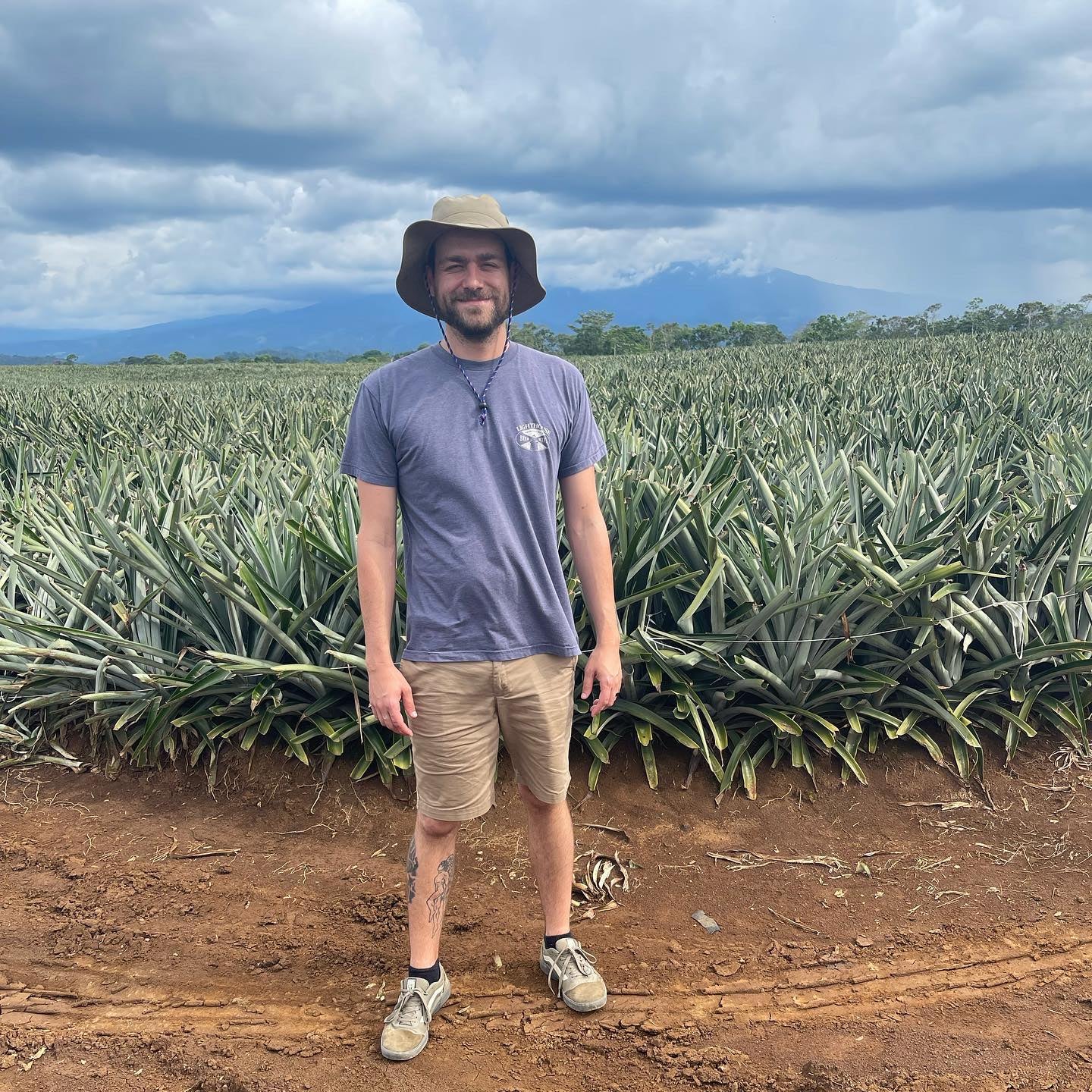
- What is your position here at ECU and what are your responsibilities?
I am the Manager of Web Communications at Creative Services for ECU. My primary responsibilities involve ensuring that our web communications, websites, and marketing emails are effective, reach our target audiences, and align with ECU’s branding, Accessibility standards and mission.
- What does sustainability mean to you?
Sustainability means taking proactive steps to ensure that our planet remains healthy and capable of supporting future generations. It’s about making informed choices that reduce our environmental impact and conserve resources, ensuring that we do not compromise the future in our actions today.
- What initially got you interested in sustainability?
My interest in sustainability was sparked by the growing uncertainty of the climate crisis and its implications for my two teenage sons. Understanding the profound impact our actions can have on the environment motivated me to make meaningful contributions toward sustainability.
- What are some of your favorite things you do to make your life more sustainable?
I’m an avid gardener and try to grow my own food, which reduces the need for packaged goods and the carbon footprint associated with transporting food. I also collect rainwater and compost food scraps, which helps enrich the soil naturally. My blog, Soil Society, focuses on improving soil health, highlighting how critical healthy soil is to sustainable agriculture. Alongside gardening and composting, I run a side business through my web design company, Brand and Web Designs, where I offer Green hosting solutions, powered by renewable energy. The digital industry, surprisingly to many, accounts for 2-5% of global emissions, that’s more than the aviation industry. I address this by planting a tree here in town for every website I create, directly combating these emissions.
More details about the digital industry’s impact can be found on the W3C’s blog.
- Do you have any advice for someone who is new to sustainability?
Start with small, manageable changes and educate yourself about the impacts of different practices. Find aspects of sustainability that you’re passionate about and explore them further. Every small action counts, and collectively, they lead to significant environmental benefits.
- Do you have any resources you recommend for learning about sustainability?
Local initiatives like ReLeaf, Inc., where I serve on the board, offer hands-on opportunities to engage with sustainability efforts directly. ReLeaf has planted nearly 4,000 trees in Greenville and we will continue to do so as long as we can. We have a lot of great sustainability non-profits here in Greenville.
- What do you think is the most important thing people can do to help with sustainability efforts on campus and in our community?
The best action people can take, in my opinion, is to become active participants in sustainability initiatives in your local community. On campus, joining clubs like ReLeaf at ECU, if you’re a student, can make a significant difference. In the broader community, advocating for sustainable practices and volunteering with organizations like ReLeaf, Inc. helps keep the “Green” in Greenville. Remember Servire – “To Serve.”
April 2024
Brynn Miller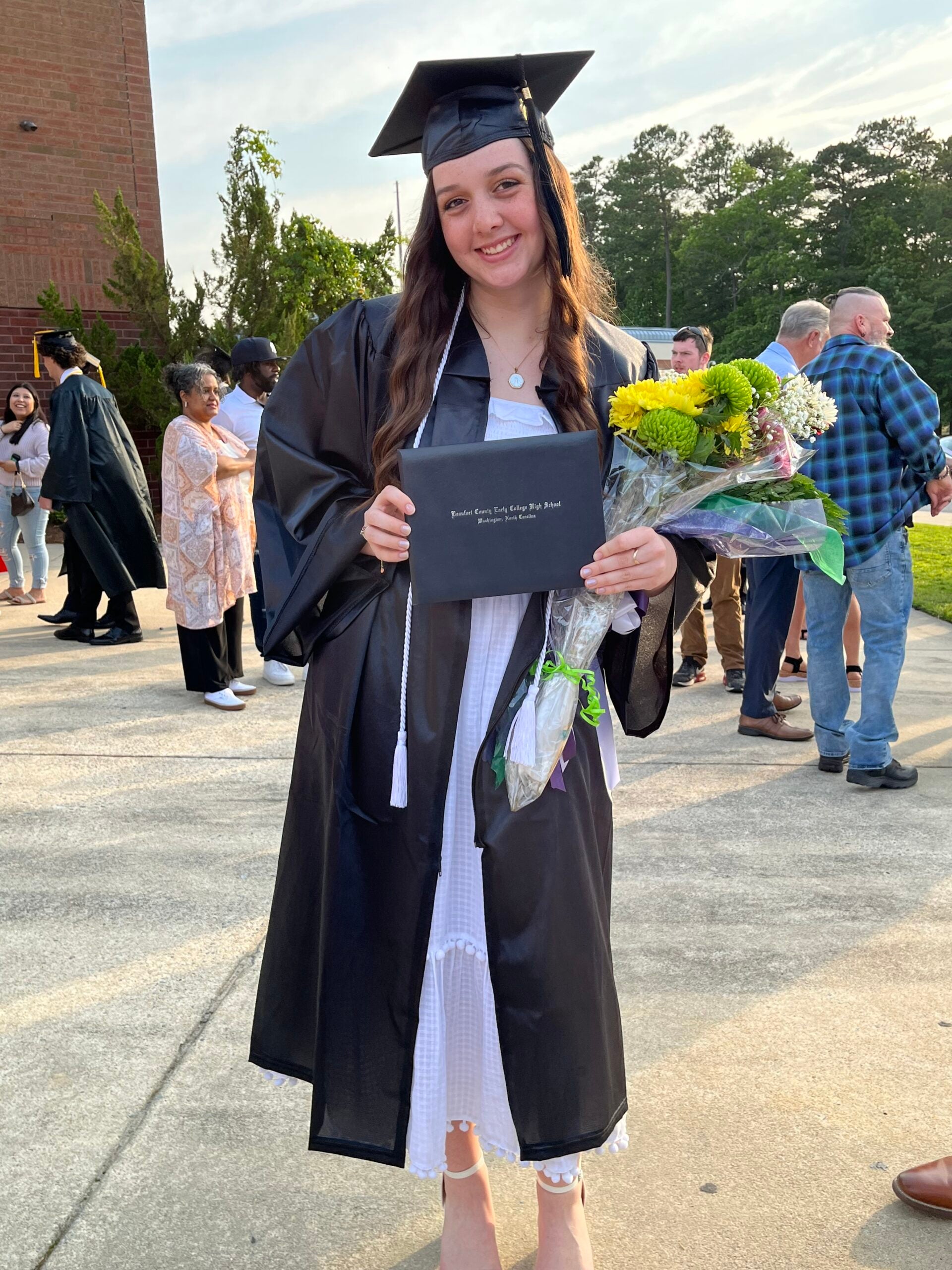
- What is your position here at ECU and what are your responsibilities?
I am an intern for the Sustainability Office here at ECU. I am currently digitalizing fleet records from the ECU Automotive Shop to determine which departments would benefit from using an electric vehicle. I also attend events to promote sustainability and our office here on campus.
- What does sustainability mean to you?
Sustainability is the active pursuit of preserving our earth and its resources. Reducing our waste and consumption to aid and protect the environment.
- What initially got you interested in sustainability?
Growing up, I was always interested in nature and the world around me. My favorite book growing up was called Life in a Pond, a nonfiction book about life forms in a pond ecosystem. My family always reduced, reused, and recycled whatever we could. When I was in middle school, I started to see videos about a brand called Lush that made interesting bath bombs, after researching the brand more, I fell into a global warming, climate change, and sustainability rabbit hole. After that I was obsessed. I followed sustainable creators and brands, read books about the environment and human’s effect on it, watched as many documentaries as I could, and now chose a degree in Environmental Studies.
- What are some of your favorite things you do to make your life more sustainable?
Some of my favorite sustainable things are using wool dryer balls, refillable, powdered laundry detergent, and cloths instead of paper towels. We save most of our food scraps to feed our friend’s chickens, we support charities committed to cleaning the environment, and we donate any unwanted items, clothes, towels, etc. to local businesses like the animal shelter and My Sister’s Closet. Minimizing waste has been the focus of my household on our sustainability journey.
- Do you have any advice for someone who is new to sustainability?
Sustainability is an extremely personal journey and what works for others may not work for you, it can be incredibly overwhelming and it’s easy to get flustered by the mass of information out there. However, if you want to start living sustainably, focus on one thing at a time. Find what works for you and once you feel that you are ready, move on to a different area that needs some improvement. For me, it was my laundry routine, then my kitchen, and now my bathroom. I focused on one aspect of my life that I could change and then I moved to the next. No one was magically sustainable overnight, and no one is perfect, just do what you can and know that you are trying your best to make a difference.
- Do you have any resources you recommend for learning about sustainability?
The first place I would go is ECU’s Sustainability Office website. There is so much information on how to live sustainably, specifically as a student of ECU or a citizen of Pitt County. For additional information, I would recommend looking at a combination of websites, published papers, and social media, to get a well-rounded understanding of the topic.
- What do you think is the most important thing people can do to help with sustainability efforts on campus and in our community?
Educate yourself about sustainability and what it means to you. Do research, talk to people, read, whatever it is, just try to learn. The more you learn, the more you will care.
March 2024
Avian White
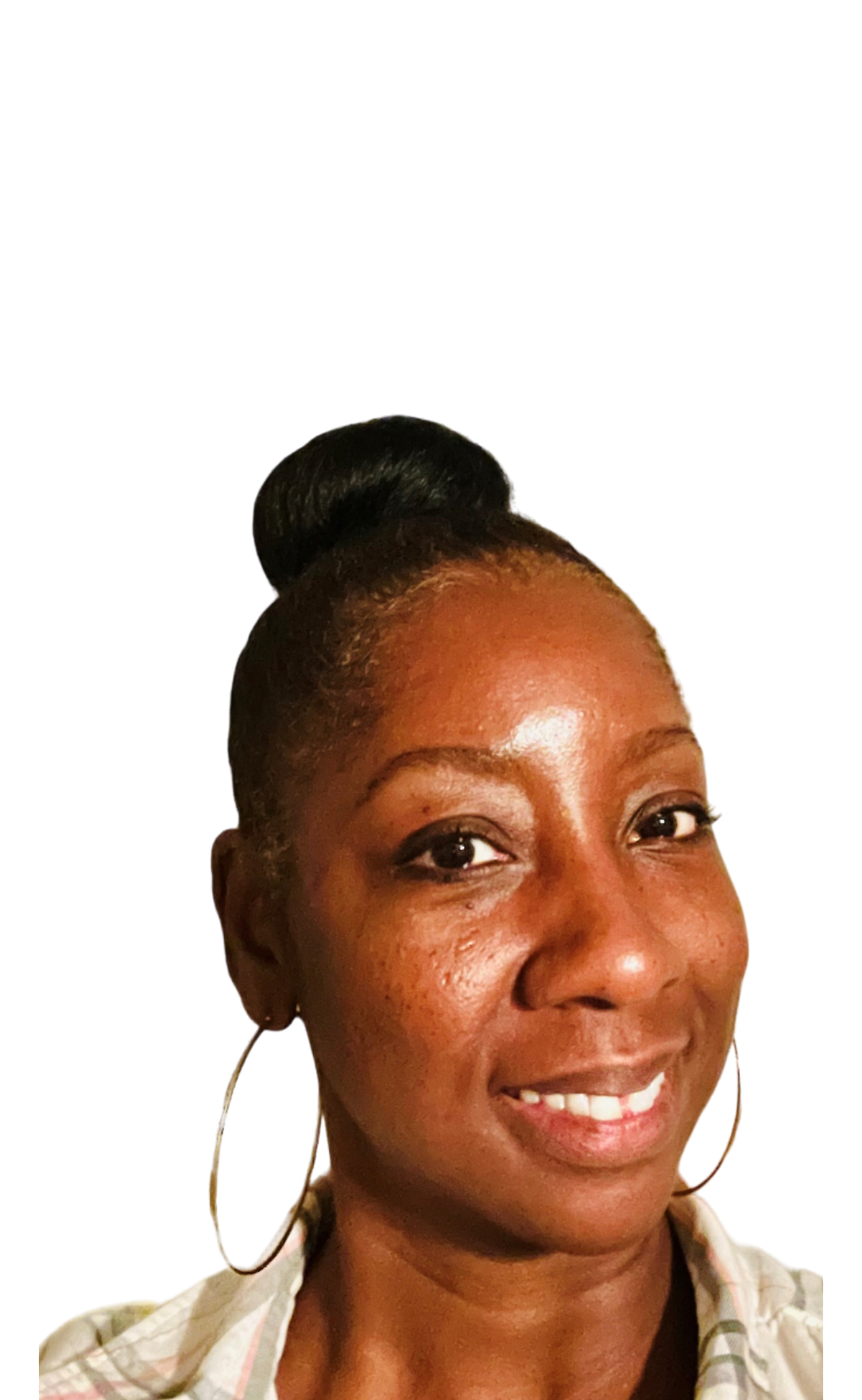
- What is your position here at ECU and what are your responsibilities?
Teaching Instructor and Environmental Health Lab Manager
- What does sustainability mean to you?
To me, sustainability means using our resources wisely and trying to recycle and re-use.
- What initially got you interested in sustainability?
Environmental Health is what got me interested in sustainability. As I teach, I learn along with my students. Discussion of multiple topics in EH has shown me the effects of waste and how it impacts human health and the planet.
- What are some of your favorite things you do to make your life more sustainable?
Instead of throwing away old, gently used items, I try to donate them. This not only helps the environment but may also help others. Another thing I do is, while I love meat, I try to have a meatless day at least once a week.
- Do you have any advice for someone who is new to sustainability?
Do one thing at a time. Sustainability is a journey, it’s okay to start small and keep building up. That leads to success.
- Do you have any resources you recommend for learning about sustainability?
Honestly, our sustainability webpage is great. I would recommend people visit that site. Also, speaking with ECU Sustainability, Kim Fox and Chad Carwein. They are a great resource and with imagination, some portion of sustainability can be incorporated into our classes.
- What do you think is the most important thing people can do to help with sustainability efforts on campus and in our community?
I think simple things will make a big impact. Reducing food waste is a big one and conscientious recycling. If people really pay attention to what they are putting into recycling bins and make sure they are using the correct bins for the correct items, that will make a huge difference.
February 2024
Liz Mizelle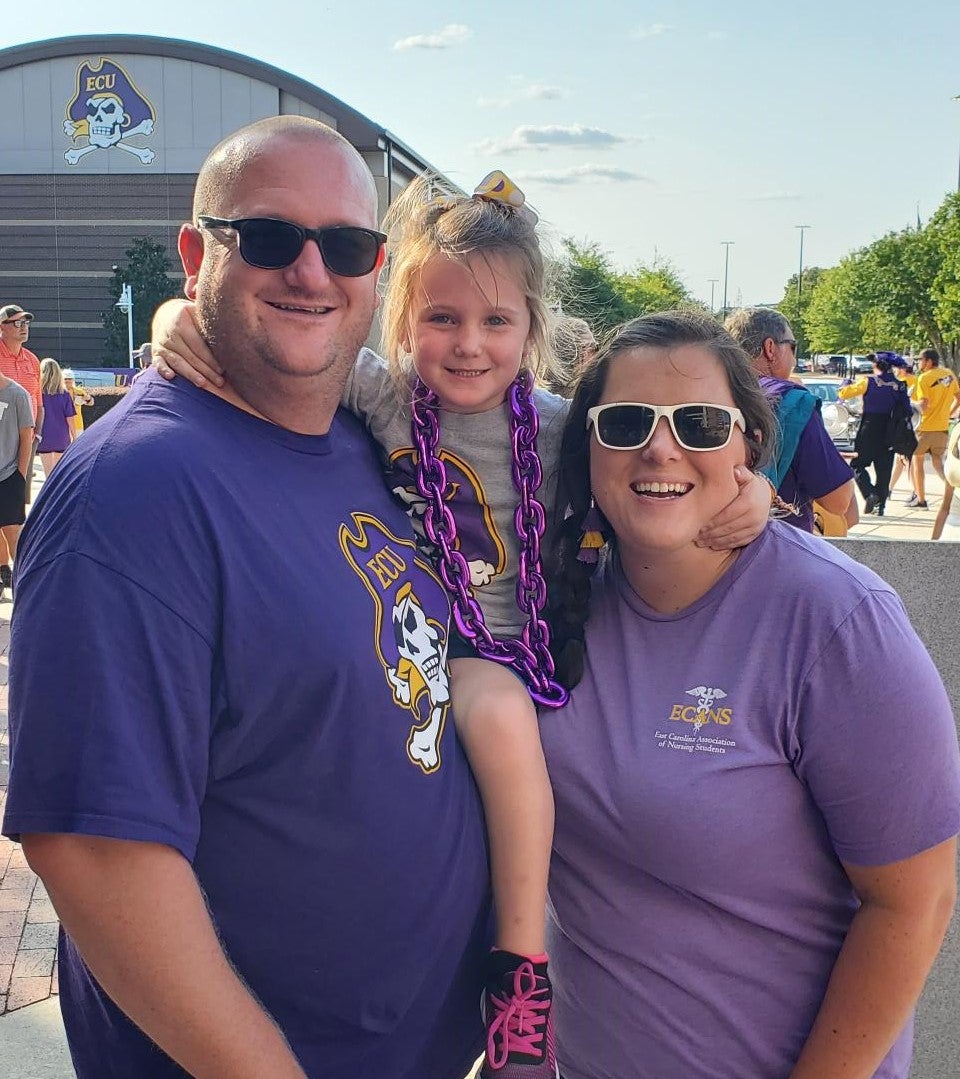
- What is your position here at ECU and what are your responsibilities?
I am an Assistant Professor within ECU’s College of Nursing, teaching pre-licensure nursing students in clinical, the classroom, and in the lab for the last 9 years. I also conduct research. I am building a research program focused on the negative health effects of extreme weather on coastal, rural, and agricultural communities.
- What does sustainability mean to you?
To me, sustainability is meeting the needs of current generations without compromising Earth’s resources for our future generations. Sustainability involves practices that consider and promote planetary health.
- What initially got you interested in sustainability?
I’ve always appreciated nature, even from a young age. I have become more and more aware of the interconnectedness between humans, animals, plants, and the environment, both nearby and across the globe. Practicing as a nurse in America, I have used thousands of single-use and plastic products and have seen a considerable amount of products and other resources wasted that served little to no purpose. While many healthcare products are intended to control infection, pain, etc., some are also in place due to convenience and price. As a holistic approach is central to being a nurse, I feel it is my duty to promote sustainability in my current role at ECU and within the nursing profession.
- What are some of your favorite things you do to make your life more sustainable?
Finding solutions that are both good for both my family’s health as well as the health of the planet! Like gardening, compositing, switching food, and health/beauty products.
- Do you have any advice for someone who is new to sustainability?
It may not be very innovative advice but start by taking small steps. Switch out your shampoo, bike to the grocery store, avoid printing, turn your computer power settings down. After a year, you can truly become a sustainability champion. Then you could help others or join a local group that aims to make your community more sustainable.
- Do you have any resources you recommend for learning about sustainability?
For learning about sustainability in healthcare, and even in your personal life, check out resources on the Alliance of Nurses for Healthy Environments website, https://envirn.org/resources/ and the Carolina Advocates for Climate, Health, and Equity website, https://www.nccliniciansforclimate.org/resources
- What do you think is the most important thing people can do to help with sustainability efforts on campus and in our community?
Tie to something important in your life. Whether it be health and wellbeing, saving money, social equity, resilience….there are lots of benefits. Be willing to share these stories at your staff or fac org meetings, with administrators and local decision-makers.
January 2024
Chad Carwein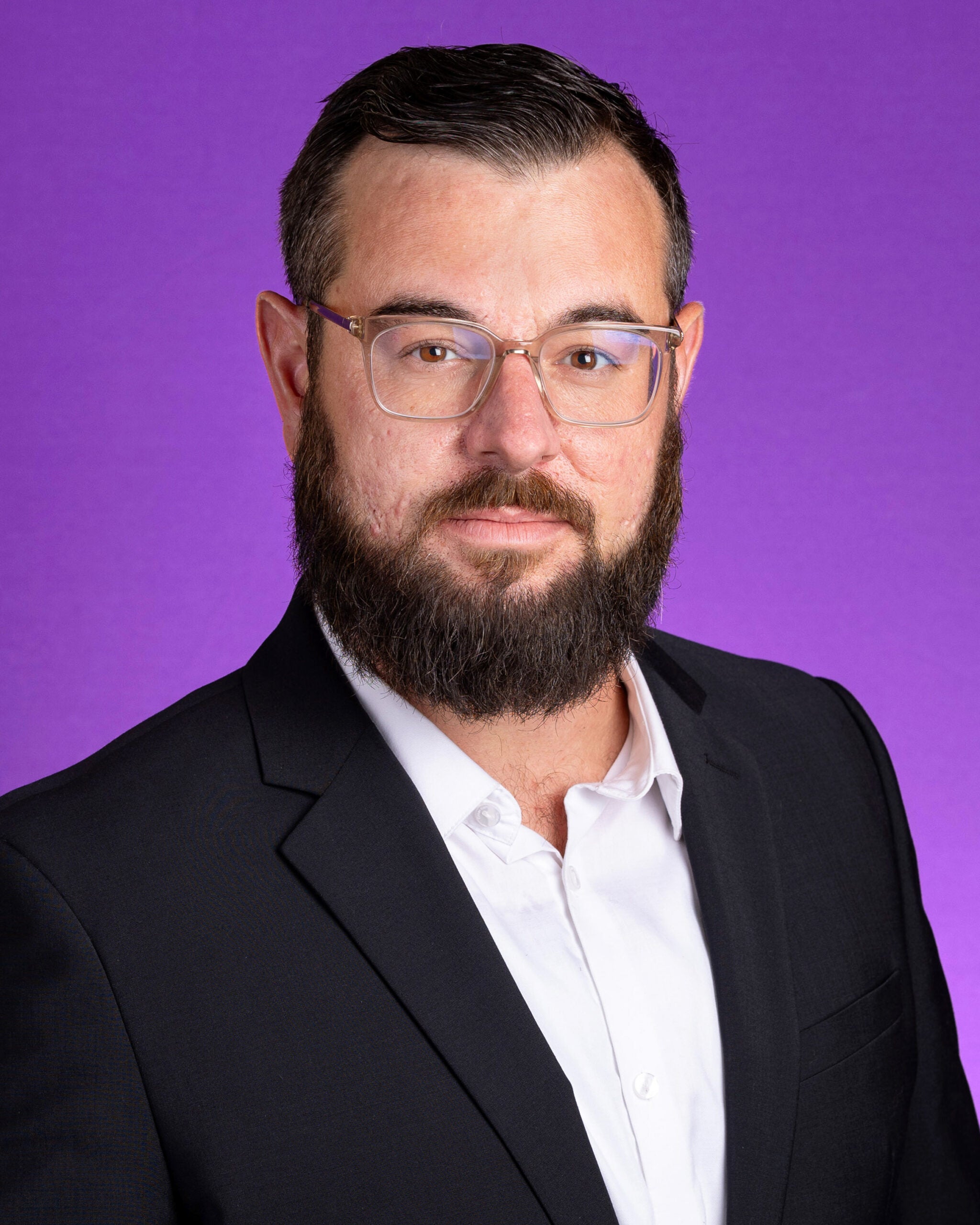
- What is your position here at ECU and what are your responsibilities?
I am the University Sustainability Manager for ECU. I am the first person to hold this position and I’ve been building the program from the ground up since starting at ECU nearly 8 years ago in Spring 2016.
- What does sustainability mean to you?
In general, sustainability is meeting the needs of the present without compromising the ability of future generations to meet their own needs. However, there are so many more nuances to sustainability at an institution of higher education. The truth of the matter is that, given unlimited resources, we could power our campus with 100% renewable energy, capture and reuse all the rainwater that falls on campus, and make our campus zero waste through improved recycling and composting as well as green purchasing practices. However, ECU’s efforts alone will not make a difference in terms of global climate change and human impacts on the planet. The best way to truly have a global impact is to educate our students about sustainability and give them more opportunities to utilize the campus as a living, learning laboratory for sustainable practices.
- What initially got you interested in sustainability?
I studied psychology and Spanish in undergrad and had the opportunity to study abroad in Granada, Spain the summer of 2008. While I was living in southern Spain that summer, the city experienced a severe drought. It was so hot and dry that there were teens skateboarding in the bone-dry canal that ran through the city. The cost of utilities had also skyrocketed and my host mother was a widow so she relied on hosting international students for income. We would eat dinner by candlelight, she would watch a limited amount of TV in the dark each night, and she would pound on my bathroom door if the shower water ran for more than 90 seconds! That experience opened my eyes to what it would be like living in a world with limited resources.
- What are some of your favorite things you do to make your life more sustainable?
I try to reduce single-use plastics as much as possible. Obviously, I bring reusable bags to the store and a reusable water bottle is always within reach along with a set of reusable utensils; however, there are so many other ways to cut back on plastic. Refilling household cleaners and hygiene products, buying in bulk to cut down on packaging, and looking for other reusable alternatives to all sorts of household products like dryer sheets, air filters, ziplock bags, disposable napkins and paper towels, etc. I also ride an e-bike to campus when I don’t have to go back and forth between Main and HSC and the weather is nice. Cycling is fun and active transportation is way better for your health!
- Do you have any advice for someone new to sustainability?
Individual changes in your habits and routine can add up to big impacts over time and, if you can convince friends and family to come along for the sustainability journey, you’ll have an even bigger impact. Start small by bringing reusable bags and bottles with you then start to think about your daily commute and diet. Active transportation can actually be quite enjoyable. Riding your bike to and from campus is healthier and gives you some time to plan your goals for the day and debrief from a busy work schedule and free your mind on your ride home. Eating a plant-based meal for lunch every day or taking meat out of meals a few nights each week will really add up over the course of an entire year. Take your sustainability efforts to the next level by attending and bringing a friend to a Sustainability Film Screening or volunteer opportunity this spring semester!
- Do you have any resources you recommend for learning about sustainability?
There are some great newsletters and social media profiles to follow and keep up with all things sustainability-related. First, ECU is a member of the Association for the Advancement of Sustainability in Higher Education (AASHE) and AASHE puts out a weekly bulletin that you can sign up for here: https://bulletin.aashe.org/. The AASHE Bulletin also includes a weekly list of green jobs in Higher Ed for those seniors about to graduate! For energy-related news, I subscribe to receive weekly digests from the Energy News Network: https://energynews.us/digest/?utm_medium=email. As far as sustainability influencers go, I recommend following: Intersectional Environmentalist Leah Thomas @GreenGirlLeah, Bea Johnson Founder of @ZeroWasteHome on Instagram, and Google’s Chief Sustainability Officer Kate Brandt on LinkedIn. If you want to incorporate more sustainability practices into your workplace here at ECU, please consider learning more and signing up your department for the Green Office Program: https://campusoperations.ecu.edu/sustainability/green-office-program/.
- What do you think is the most important thing people can do to help with sustainability efforts on campus and in our community?
I get this question a lot and the area where we each carry the heaviest carbon footprint, if you will, is our diet. Eating a plant-forward diet is a must for anyone concerned about climate change. You don’t have to become a vegan overnight, but the old saying of “all things in moderation” applies here too. The next best opportunity is reducing your overall personal consumption of goods that require raw materials and energy-intensive manufacturing. It’s so easy with the world at our fingertips to order pretty much anything you can imagine online and have it delivered to your house within just a few days. However, more stuff in our lives is not the key to happiness. In fact, it can have quite the opposite effect as we try to keep up with the latest trends and styles. We should all also try to reduce the impacts of our transportation habits by having more remote meetings or incorporating more active transportation into our daily routines.
July 2023
Kim Fox Introduction
Article written by Kim Fox, ECU Sustainability Outreach Specialist

I’m very excited to get to work here at ECU as the new Sustainability Outreach Specialist! My main goal is to help with sustainability programs and to help get the word out about the wonderful work we’re doing. If you have any new ideas for sustainability activities or want to connect with clubs, faculty, or staff and need a helping hand, I’m here for you.
I’ve been passionate about the outdoors and nature for as long as I can remember, always playing in the woods as a kid and going hiking whenever I got the chance. In 2016, I took this hobby to a new level and spent just over 5 months hiking the Appalachian Trail. Spending time in nature has always given me peace of mind and I am very passionate about preserving the nature I love for future generations to enjoy.
I also love reading everything from non-fiction to fantasy and science fiction and enjoy chatting about books. When you see me around, let me know what you’ve been reading!